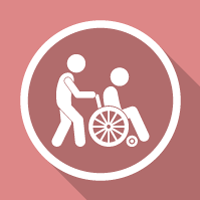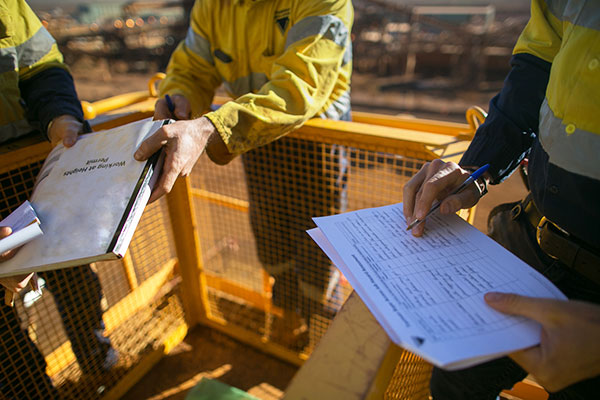We offer over 80 fully accredited online training courses in health and safety, business skills and health and social care. Our online courses provide a fast, flexible means for business to upskill and train employees with minimal downtime.
Our extensive course list is ideal for businesses of all sizes, whether you want to refresh existing skills or train new employees. For information on bulk purchase discounts, to discuss your needs or to book a free tutorial, please get in touch.
Course Requirements
All our online courses are web-based. Candidates will need the latest version of Chrome or Microsoft Edge to take part. Please note Internet Explorer is no longer supported.
Course Assessment
All our online courses include an end-of-training assessment, which is web-based. They will have three tries to pass the assessment, after which they will need to reach out to our team to discuss re-sitting.
Health and Safety online training
Our range of health and safety online training courses are ideal for new employees, continued professional development or as refreshers on key industry skills. Every course is expert-designed and provides the essential knowledge your employees need to stay safe.
For information on bulk purchase discounts, to discuss your needs or to book a free tutorial, please get in touch.
Health & Safety

Abrasive Wheels
This course is designed for anyone who uses abrasive wheels or employs people who use abrasive wheels as part of their work. It covers different types of abrasive wheel, safety in their use and how to identify the type of wheel.

Achieving Food Hygiene Rating Level 5
This course will give candidates an overview of how the National Food Hygiene Rating Scheme works, what the scoring criteria are and how these are assessed by the inspectors, the appeals process, the Safer Food Better Business management system, E-Coli and concludes with some practical advice for ensuring that candidates’ place of business will achieve the best hygiene score possible.

Allergen Awareness
This course will teach candidates about general allergies, food allergies and food intolerances and explains the differences between them. It covers the 14 allergens controlled by legislation along with food additives and how they can trigger allergic reactions.
The course takes a detailed look at the symptoms of food allergies and takes in the wider picture discussing the current theories of why rates are increasing. Finally, this course covers practical steps that can be taken to reduce the risk from allergens and what steps can be taken both internally and externally to monitor the control measures.

Asbestos Awareness for Architects and Designers
This course will teach candidates the risks of working with asbestos, how to recognise asbestos, where it’s used, how to minimise the risks involved and key legislation about working with asbestos. This course is a variation on the broader Asbestos Awareness course and is designed specifically for designers and architects.

Asbestos Awareness
This course will teach candidates the risks of working with asbestos, how to recognise asbestos, where it’s used, how to minimise the risks involved and key legislation about working with asbestos.

Assessing Display Screen Equipment
This course is designed for companies who employ users of display screen equipment, or DSE. DSE is a term that covers a wide range of equipment. If equipment like this is not set up correctly, users are at increased risk from certain disorders.
This course is specifically designed for employees who will be assessing the DSE set ups of their colleagues and will provide the skills they need to ensure the safety and health of all display screen users in the workplace.

Banksman Training
This course, will cover common vehicle reversing accidents and the crucial role played by the banksman. It’ll also look at the controls and actions that can reduce the likelihood of such accidents.
The course will start by identifying the three main categories of reversing accidents – injuries to pedestrians, damage to objects in the workplace and damage to street furniture along with coverage of other types of accidents.

Basic Fire Safety Awareness for Care Homes
This course is a variation on the Basic Fire Awareness course that contains information that is specific to employees of care and residential homes.
This course explains why fires occur, what actions candidates must take to help prevent them starting, and what actions candidates must take when they do. By completing this course, candidates are taking a key step towards making their workplace a safer environment.

Basic Fire Safety Awareness
This course explains why fires occur, what actions candidates must take to help prevent them starting, and what actions candidates must take when they do. By completing this course, candidates are taking a key step towards making their workplace a safer environment.

Basic Legionella Management
This course is designed to educate about Legionella, the potential risks associated with water systems and how these can be prevented or controlled. It will allow candidates to understand the risk that Legionella poses and helps them to develop the systems and working practices needed to stay safe.
This course provides candidates with the essential information needed to set up a new Legionella control programme, or alternatively, to make confident, informed choices when commissioning others to take this on.

Behavioural Safety
This course defines behavioural safety and explains the origins of the concept. It covers how it can be implemented in the workplace and some of the potential benefits. It includes analysis of some examples of ‘at risk behaviours and some examples of ways candidates can measure how well their organisation is doing when it comes to safety. The course also outlines the key laws regarding health and safety in the workplace and how to ensure positive workforce attitudes.

CDM Awareness
This awareness course covers the core concepts of the regulations on CDM and details the various roles that are required for a construction project, along with the key documents that need to be produced. It starts with an introduction to CDM, then covers some of the parameters that need to be checked when a project is being planned. It finishes by detailing a number of example projects that illustrate how the regulations can be applied.

Control of Substances Hazardous to Health (COSHH)
This course covers all essential information about Control of Substances Hazardous to Health. It is designed specifically for anyone who is exposed to Substances Hazardous to Health at work, as well as line managers with responsibility for such people.

Covid 19 Safe Workspaces
This course explores the risk to workers caused by the Covid-19 virus and covers actions that can be taken by employers and employees to protect themselves and each other as they return to work. The content of this course is based on the latest information from the UK government and the NHS.
It covers information about the virus, risk assessments and personal safety, along with how to make changes to the daily work environment to address these risks.

CSCS Green Card Bundle
This bundle includes the Level 1 Health and Safety in a Construction Environment course and the accredited exam which leads to a CSCS Green Labourer Card. Please note, delegates will also need to book a CITB HS&E touchscreen test through a Peason Vue test centre.

Developing a Workplace Mental Health Policy
When people have good mental health, they are more likely to fulfil their potential. That means they enjoy work and cope easily with work situations. They have a happy family life and good social relationships.
Organisations are required by law to promote and protect the mental well-being of their workforce.

Display Screen Equipment Awareness
This course is aimed at users of display screen equipment, or DSE. DSE is a term that covers a wide range of equipment. If DSE equipment like this is not set up correctly, users are at increased risk from certain disorders. As an employee, candidates share the responsibility to keep themselves and their colleagues safe at work. That means undergoing relevant training and ensuring that rules are followed.

Drug and Alcohol Awareness
This course is aimed at managers and staff in all industries who play a role in reducing drug, alcohol and substance misuse in the UK.
The course starts with official statistics to illustrate the scale of drug and alcohol abuse in the UK. You’ll learn in detail about commonly used drugs, including cannabis, cocaine, heroin, LSD, ecstasy and some new designer drugs.

Electrical Safety
This course covers the many benefits electricity brings to society, as well as its key components: voltage, current and resistance. It will explain the two main types of electricity, cover UK accident and death statistics, and describe a simple way of remembering the electrical hazards. It then goes on to provide basic instructions about how candidates can safely help someone they suspect has received an electric shock.
This course is an excellent core health and safety qualification, particularly for candidates who work around, or with, live electrical equipment.

Emergency First Aid at Work – Online Annual Refresher
This Emergency First Aid Refresher course will highlight some of the most common situations that candidates might come across in the workplace, and the actions that they can take to help.

Environmental Awareness
This online course aims to increase your awareness of major environmental issues and provide an introduction to environmental management systems.
It will start by defining important terms and identifying the key environmental issues the world is facing.

Fire Doors
This short course provides you with an introduction to fire doors in the workplace and why they play an important part in fire safety planning. It’ll also look at the different types of fire doors and importance of fire door maintenance.

Fire Extinguisher
This course will teach candidates how to identify the different types of fire extinguishers that might be installed within the workplace, and what situations they might be used in. At the end of the final module candidates will be presented with a simulation that will test what they have learnt.
This course is an excellent core health and safety qualification, particularly for candidates who work around, or with, flammable materials of any kind.

Fire Marshal for Care Homes
This course provides the essential knowledge needed for candidates to carry out the functions of a fire marshal. Please note, this course also contains all of the content in the Basic Fire Awareness and Fire Extinguisher courses.
This course is a variation on the Fire Marshal course that contains information that is specific to employees of care and residential homes.

Fire Marshal
This course provides the essential knowledge needed for candidates to carry out the functions of a fire marshal. Please note, this course also contains all of the content in the Basic Fire Awareness and Fire Extinguisher courses.

Hand Arm Vibration Syndrome
This short course provides you with an introduction to Hand Arm Vibration Syndrome, otherwise known as HAVS.
The course starts by establishing exactly what Hand Arm Vibration Syndrome is, before providing a detailed description of the symptoms and consequences of the disorder.

Introduction to HACCP Level 2
This course covers the key terms candidates will need to understand, before moving on to identifying critical control points and analysing key hazards. Candidates will learn how to determine control points and how to avoid cross-contamination in the food chain. The course covers control measures that can be taken, along with how to address a problem if a critical limit is breached.

Introduction to Personal Safety for Lone Workers
This course is an introduction to personal safety for lone workers and applies to those that work alone within business premises, mobile workers, and homeworkers. It covers the legal responsibilities of both employers and employees, some of the common security precautions that can be implemented, practical steps candidates can take to avoid conflict in lone worker situations and other elements that can contribute to lone worker safety.

Introduction to Risk Assessment
At the end of this course, candidates will understand what a risk assessment is and how to complete one. The course will define important terms, provide some basic background information to explain how important risk assessments are and discuss some of the legislation that applies. It will then go on to provide practical advice on how to identify hazards and analyse risk before finishing off by explaining the responsibilities of both employers and employees with regards to risk assessment.

Level 1 Food Safety – Catering
Food safety combines a number of practices to reduce health hazards. These include premises hygiene, personal hygiene, risk control, pest control and waste management. This level 1 course is about minimising the level of potential hazards in a food catering setting.

Level 1 Food Safety – Manufacturing
Food safety combines a number of practices to reduce health hazards. These include premises hygiene, personal hygiene, risk control, pest control and waste management. This level 1 course is about minimising the level of potential hazards in a food manufacturing setting.

Level 1 Food Safety – Retail
Food safety combines a number of practices to reduce health hazards. These include premises hygiene, personal hygiene, risk control, pest control and waste management. This level 1 course is about minimising the level of potential hazards in a food retail setting.

Level 2 Food Safety – Catering
Food safety combines a number of practices to reduce health hazards. These include premises hygiene, personal hygiene, risk control, pest control and waste management. This level 2 course is about minimising the level of potential hazards in a food catering setting.

Level 2 Food Safety – Manufacturing
Food safety combines a number of practices to reduce health hazards. These include premises hygiene, personal hygiene, risk control, pest control and waste management. This level 2 course is about minimising the level of potential hazards in a food manufacturing setting.

Level 2 Food Safety – Retail
Food safety combines a number of practices to reduce health hazards. These include premises hygiene, personal hygiene, risk control, pest control and waste management. This level 2 course is about minimising the level of potential hazards in a food retail setting.

Lockdown Procedure in Schools
This course will introduce the learning outcomes and role of the lockdown officer, then discuss some of the likely reasons for a lockdown, go over some of the step’s candidates can take to prepare their school for lockdown as well as what to do in the event of a lockdown taking place.

Managing Occupational Health and Wellbeing
This course explains the key elements, procedures and activities involved in successful Occupational Health and Safety Management in the workplace.
The course show how professional Occupational Health and Safety Management benefits individuals and organisations.

Manual Handling
This course outlines exactly what constitutes manual handling and covers the regulations and legislation that apply to manual handling tasks. It then goes on to cover safe handling techniques and how to develop good habits in relation to manual handling. It finishes off by introducing some practical solutions and the use of mechanical aids. Important note: Please note that this is an awareness course only, if your duties include manual handling, you will also need further practical training, you can get in touch with us to arrange this.

Noise Awareness
This course will show candidates how dangerous noise can be in the workplace, and the main safety issues they should be aware of. It will take candidates through some of the simple science, the main laws that apply and introduce noise level limits. It also covers some of the specific health risks and how to avoid them by producing risk assessments, action plans and through the provision of appropriate Personal Protective Equipment.

Paediatric First Aid
This course will equip candidates with the theoretical knowledge, skills and confidence needed to deal with paediatric first aid situations. It covers all of the key topics including: emergency planning, assessing a situation, basic Life Support, CPR, shock, fractures, bleeding and a range of other minor illness and injuries. Please be aware that having a theoretical knowledge on its own is not enough to be considered competent in paediatric first aid and practical demonstration in some areas is required to complete this training. Please contact us to arrange this.

Personal Protective Equipment
This course will show how wearing PPE plays a crucial role in preventing and reducing fatalities, injuries, and diseases at work. It includes details of a wide range of PPE options, examines the legislation and regulations and also covers the role risk assessment plays in the selection and use of PPE. The course concludes with advice on how to use, fit and wear PPE and its physical and theoretical limitations.

Preparation for the CITB Health and Safety Awareness test
This course is for candidates who have completed their Level 1 Health and Safety in a Construction Environment course and want to prepare for the touch screen test. The course reviews the key learning objectives of the Level 1 course including Accident Reporting, Environmental Awareness, Health and Welfare facilities, fire safety and hazardous substances.

Provision and Use of Work Equipment Regulations (PUWER)
This short course provides you with an introduction to the Provision and Use of Work Equipment Regulations, otherwise known as PUWER. You will learn about the types of equipment that fall under this legislation along with the common hazards, equipment inspections and maintenance.

Slips, Trips and Falls
This course will introduce candidates to some of the statistics relating to slips, trips, and falls and dispel some of the myths surrounding them. It also touches on the law as it relates to slips, trips, and falls. It contains real examples of where things have gone wrong and some practical steps that could have been taken to prevent these incidents. The course also covers some of the straightforward changes that can be made in most businesses to significantly reduce the risk of a slip, trip or fall incident occurring.

Supervising Food Safety – Level 3
This is a detailed course that starts with basic definitions, then follows a logical path through other topics including, types of food hazards, personal hygiene, pest control, legislation, enforcement, and the design and cleaning of premises and equipment. It also discusses how to implement a successful food safety management system. There’s a wide range of topics because an effective Food Safety Management System, professionally run, protects customers, staff, and the reputation of candidates’ companies.

Working at Height
This course is aimed at anyone who undertakes work at height, or who employs people who regularly work at height. It covers what constitutes work at height, the safety issues, and how to assess and reduce some of the risks. Important note: Please note that this is an awareness course only, if your duties include working at height, you will also need further practical training, you can get in touch with us to arrange this.

Working in Confined Spaces
This course will cover the legislation associated with working in confined spaces. What constitutes a confined space, the potential hazards, safe operating procedures, and emergency procedures and rescue. Important note: This is an awareness course only, designed for people who need to be aware of the hazards and risks of confined space working but are not required to enter a confined space. If you are required to perform any work activity in, or in the proximity of, a confined space then you will also need to have an ‘approved’ standard of practical training at the ‘appropriate’ level.

Working Safely
Working safely is in the interest and concern of all staff, both employers and employees. Health and safety is one of the few areas where the law places specific duties specifically on employees so a knowledge of where this applies and how to ensure that it is adhered to is vital to protect individuals and businesses. The course covers a wide range of topics including fire safety, asbestos awareness, working at height, COSHH, PPE and electricity. It also covers schemes for improving safety performance and methods of protecting the environment.

Working Within the Private Security Industry
This course is an introduction to the private security industry, and the main services it covers. It discusses the body which regulates the industry, highlights the standards of behaviour expected from security operatives, and the law as it relates to the industry. It includes an in-depth look at health and safety issues, the concept of duty of care and examines a range of emergency situations which security operatives might be involved with. The course also covers communication skills, including tips for effective radio communication and instructions on how to use the phonetic alphabet.

Workplace Health and Safety
At the end of this course candidates will have an understanding of health and safety legislation and be able to list common causes of accidents. Candidates will also be able to understand good practice in relation to electricity and describe the use of safe manual handling techniques as well as be able to describe good practice associated with COSHH regulations, be able to describe actions in the event of a fire and know how to deal with an accident.
Business Skills

Alcohol Personal Licence Holder
This course provides candidates with the knowledge needed to complete the test to become a personal licence holder. It covers all the major topics relating to UK licensing law, responsibilities, and penalties for breaching these. It also looks in detail at the issue of age verification including an interactive element to support learning in this area.

Anti Harassment and Bullying
This course covers the commitments that should be laid out in your company’s anti-harassment and bullying policy so as to comply with UK law. It explains the differences between harassment and bullying, the steps that can be taken if either of these occur in or out of work, and some case studies to illustrate the points covered throughout the course.

Anti-Bribery and Corruption
This course examines bribery and the legislation, measures and procedures that can uncover, control, and reduce the impact of this criminal activity. This information is broken down into the following sections; Why corruption and bribery occur, The UK Bribery Act, Anti-bribery policies, anti-bribery management systems and how to deal with bribery in the workplace.

Anti money laundering
Money-Laundering is a major criminal problem, worldwide. This course starts by defining moneylaundering and describing the ‘regulated sector’ as defined by the Proceeds of Crime Act. The course discusses a number of money-laundering offences, including tax evasion, theft, fraud, bribery and the financing of terrorism. You’ll learn about some of the ‘red flags’ which could indicate illegal activity, and the connections between money-laundering and certain financial institutions.

Conflict Resolution in the Workplace
Unmanaged conflict within the workplace can be costly in terms of time, money, and employee engagement. This course starts by explaining what constitutes conflict and some of the most common causes. It covers the stages of conflict and contains several extensive modules that outline conflict resolution techniques. Finally, it explores how effective management of conflict can result in positive outcomes in the workplace.

Customer Service
This course outlines exactly what is meant by customer service, and why it’s so vital and then go into detail about some of the ways candidates can improve the customer service provided by your organisation.

Cyber Security
Employees, managers and directors should all have a good understanding of the threat posed by cyber-attacks and the importance of guarding against data breaches.
This short course will explain why cyber attacks and data breaches happen and provide practical advice on how to set up effective defences.

Data Protection in the Workplace
If any individual or organisation handles personal information, they have a number of legal obligations to protect that information. Training should be a vital part of any company’s data protection policy. This course covers in detail: The benefits of good data protection, the rights of individuals in respect of their data, the data protection act, the issues that can arise from sharing data and the basic steps so candidates can create a robust data protection policy.

Developing Good Employee Relations
This course covers the many benefits that good employee relations can bring to a business. It explains how to build confidence in management, by sharing the company vision, building strong teams, and listening to feedback. It examines how a proactive HR presence benefits employee relation. Then looks at the role of employment contracts and the Employee Handbook. The course discusses Performance Management including motivating employees and how best to show your appreciation of their contribution. Finally, it shows candidates how to deal effectively with complaints, discipline, and negativity.

Developing Teamwork
This course will start by explaining in detail what team working is and cover some of the basic principles for putting together a group of people who will work well together. It then goes on to cover conflict within teams, explaining some of the reasons conflict occurs and some strategies for managing conflict. It finishes off by exploring some of the different styles of management behaviour and how to develop a resilient team.

Disciplinary Procedures
This course covers the aims of the disciplinary procedure, penalties including investigations, allegations and suspensions, procedures for carrying out hearings, and appeals.

Environmental Awareness
This online course aims to increase your awareness of major environmental issues and provide an introduction to environmental management systems.
It will start by defining important terms and identifying the key environmental issues the world is facing.

Effective Delegation
This course will start with the essentials – defining exactly what is meant by delegation and why it’s so important. It then goes into details about the elements of delegation, overcoming the barriers to delegation, how candidates can choose which tasks to delegate, who to and the process of delegation.

Equality, Diversity and Discrimination
In this course candidates discuss two topics: ‘equality’ and diversity’, and how they relate to one another. Understanding this will help us to identify and address issues of unfairness and discrimination in the workplace.

Facebook for Business
Facebook is the world’s largest social network. With over a billion users it’s very likely that a proportion of any target customer audience will have a Facebook account. This course will look in detail at the use of Facebook as part of candidates’ marketing activity.

Introducing GDPR
This course is designed for front line data processors and provides a clear introduction to the main elements of the GDPR, including compliance and the consequences of non-compliance. It explains the roles of key players and covers the main categories of personal data and the lawful basis for data processing. Other topics examined include the main Principles of the GDPR and the Rights for Individuals, along with the importance of candidates’ Privacy Policy. Finally, there’s important information on data breaches; how to avoid them, what to do if one is discovered and how to file a breach report.

Introduction to Emotional Intelligence
This course will introduce the concept of emotional intelligence and look at how candidates can use it in effective and meaningful ways. It will examine the difference between emotional intelligence and IQ and dispel some of the myths surrounding emotional intelligence. It contains a section on the advantages and disadvantages of using emotional intelligence and considers the biological purpose for emotions and how best to manage them.

Leadership Skills
A leader doesn’t necessarily have to be a ‘manager’, but it’s difficult to see how a manager could be truly effective without having at least some leadership skills. This course will introduce candidates to some of the import techniques and theories that can help to improve leadership skills and be more effective in any role.

Licensed Premises Staff Training
This course is designed for anyone that works on licensed premises and gives an overview of key topics relating to UK licencing law, responsibilities, and penalties for breaching these. It also looks in detail at the issue of age verification including an interactive element to support learning in this area.

LinkedIn for Business
LinkedIn is a very valuable tool to find the key decision makers within certain companies. It’s used for finding the best point of contact, gaining familiarity with their background before a call or sales pitch and a lot more. Find out how it can be used to enhance any business.

Managing Meetings
This course starts with some basic definitions and statistics that outline how important running meetings effectively can be. It examines factors that make meetings great, and some practical steps candidates can take to ensure everything runs smoothly and successful outcomes are achieved. It also covers ways candidates can handle any problems that may arise. Finally, it looks at different decision-making approaches candidates can use and finishes off with some notes on keeping a learning log to help promote learning and growth, ultimately supporting candidates in becoming a more confident and effective participant or chairperson.
some of the ways you can handle any problems that may arise. Finally, it looks at different decision-making approaches you can use and finishes off with some notes on keeping a learning log to help you learn and grow, ultimately becoming a more confident and effective participant or chairperson.

Managing Sickness and Absence
This course will help candidates to understand the different types of absence and Identify ways of measuring absence. It covers why candidates should complete return-to-work forms and how to conduct effective return-to-work meetings. The course finishes off by explaining the formal processes involved in managing absence and how to apply appropriate policies.

Negotiation
This course covers the basics of what constitutes a negotiation, the key stages of a negotiation, skills candidates can apply to their own negotiations and some practical advice so that candidates feel confident bringing all of this together and become more effective negotiators.

Objective Setting
This course is designed to teach candidates how to write effective objectives that deliver results. It covers the importance of goals and objectives and why we need them, the barriers to achieving objectives and how to overcome them, what SMART objectives are and how to write and identify them and concludes with essential tips for successful objective setting.

Preparing for a Job Interview
Interviews are two-way processes, where the employer and the interviewee can both decide if they are a good fit. This short course will provide you with some useful tips for how to prepare for an interview including preparing answers to common questions.
The course also covers other things to consider in advance of the interview including planning how you will get there. It briefly covers some of the key differences between online and face to face interviews.

Presentation Skills
Giving a successful presentation can be one of the hardest parts of many people’s jobs. This course is designed to address the common mistakes made when preparing for and giving a presentation so candidates can learn to can avoid these, as well as going over good practice and providing some practical advice that candidates can put to good use the next time, they have a big presentation to make.

Problem Solving
This course covers a range of problems that occur in the workplace – and how they can be recognised, controlled and solved.
You’ll learn about the three main areas in which problems can occur – people tasks and resources.

Project Management
This course covers the basic principles of project management and covers essential tools and techniques candidates can employ to improve their project management skills.

Sales Skills
The course starts with the basic rules for sales people. It covers cold calling, how to deal with gatekeepers and takes candidates through a typical face-to-face meeting. It then discusses how candidates can sell by stressing the results that prospects can expect if they buy, and how best to play to their emotions. It then finishes off by covering negotiations and how to avoid them and includes some methods for closing a sale.

Search Engine Optimisation for Business
This course focuses on the anchor point of any candidate’s digital marketing strategy, which is the website or micro-site. Here we’ll explore search engine optimisation ‘SEO’ and how candidates can use this to drive traffic to their websites.

Sexual Harassment in the Workplace
This course will start by defining sexual harassment and explaining how protection comes from both employment law and criminal law. Candidates will see from workplace statistics how widespread and serious the problem is, and how the management response to concerns raised is often poor or non-existent. It also addresses how allegations should be handled, explains the importance of having clear and robust policies and the role line managers tend to take when it comes to dealing with these situations.

Social Media for Business
This course is all about how to get the best out of social media in a business. Looking at business strategy, business development and the practicalities of employing people and agencies to support candidates’ social media activity.

Stress Management
Stress is a real problem for both organisations and their employees. It accounts for a significant proportion of work-related illness each year. Being aware of the signs of stress, some of the triggers and how to manage them can make a real difference to wellbeing and the wellbeing of people around you. This course will cover an introduction to stress and why it’s a problem, some of the causes of stress and some ways to minimise the risk of stress.

The Principles of Performance Management
In any organisation, the traditional model of strict command and control wastes a significant amount of time and money. Mutual trust, employee motivation and readiness to perform can easily be undermined. Performance management, on the other hand, offers a different, much more effective approach. In formal terms, performance management involves the achievement of performance targets through the effective management of people and the environment in which they operate. This course is all about setting achievable goals for the organisation and targets for individuals and teams.

Time Management
More often than not, the people who excel in their job, or are high achievers manage their time effectively, in a way that makes them work in a more efficient manner. This course has been designed to ensure that candidates have the techniques to improve efficiency, output, and ability to function more effectively – whether in ordinary working life or when deadlines loom and the pressure is building.

Twitter for Business
Twitter is a social media platform that is used by a wide range of people, from celebrities, who use it to communicate with their fans to companies and brands who can use it to engage their customers and attract new ones. This course looks in detail at the use of Twitter as part of candidates’ marketing activity.
Health & Social Care

ADHD Awareness
ADHD is a chronic condition that creates a range of persistent symptoms such as difficulty sustaining attention, hyperactivity and impulsive behaviour.
The course covers the definitions of ADHD, the different types of ADHD and how to recognise some key signs and symptoms.

Autism Awareness
This course will provide you with an understanding of what autism is and how it affects a child’s daily life. It will touch on what factors contribute towards a child developing autism as well as some of the typical behaviours associated with it and how to can provide effective support for those with the condition. It also discusses what happens during the diagnosis process, some of the intervention methods that can help manage the condition and suggests some simple adaptations you can make to improve a child with autism’s day to day life.

Children and Young People’s Mental Health
It starts by defining mental illness and mental health problems and their impact on children and young people. There’s extensive coverage of the many types of mental illnesses found in this group, and how they can be recognised and treated.

Dementia Awareness
This course is designed to give candidates an overview of the common types and symptoms of dementia as well as going into how it can affect the brain in different ways. It also covers strategies to use with clients with dementia and dealing with challenging behaviour. The course is intended for anyone who works with or around people that may be living with dementia.

Depression Awareness
Over 350 million people in the world are affected by depression. This online course will raise awareness of depression and how it can be recognised, diagnosed, classified and treated.

Diabetes Awareness
Diabetes is a serious lifelong health condition that occurs when the amount of glucose, or sugar, in the blood is too high. If left untreated, high blood glucose levels can cause serious health complications. This course is designed for people working in the health and social care sector and will provide an overview of the condition, the common symptoms that might indicate someone has diabetes, methods of diagnosis, some possible treatments and common complications that can affect those with the condition.

Dignity and Privacy
The course will start by defining dignity and privacy within the healthcare sector and will explain how the two are quite often linked. It will then go on to give candidates a range of useful professional tips about setting up the right working relationship with service users and discuss some of the issues that can arise when dignity and privacy are not respected.

Drug and Alcohol Awareness
This course is designed to provide candidates with the information needed to understand and spot the signs of drug and alcohol misuse. It covers the legal and social implications for the individual and for candidates’ companies if an employee is misusing drugs. This course discusses the law, different types of drugs, and policies that can be put in place to protect individuals, businesses, and employees.

Duty of Care
A duty of care is the requirement that all health and social care professionals, and organisations providing health and care services, must put the interests of service users first. This course will give candidates an introduction to the concept of duty of care, cover how duty of care affects their work, what to do if they come across a duty of care dilemma and where to go for support or advice along with some practical examples of duty of care situations.

End of Life Care
This course will provide candidates with information about what to expect, how to handle some of the emotions associated with this time and working with the other professionals involved in end of life care.

Epilepsy Awareness
This course will give candidates an overview of epilepsy. It lists the methods of diagnosis, what a seizure is and how the brain can be affected. It will introduce some possible seizure triggers and describe what to do when someone has a seizure. It will also discuss some of the treatments offered to people with epilepsy and provide practical advice on what candidates can do if they witness someone having a seizure.

Handling Information in a Care Setting
This course provides an introduction to the concept of handling information in care settings. At the end of the course candidates will understand the need for secure handling of information and they will know how to access support if they have any questions regarding access to information. The course will cover the important role confidentiality plays in developing trusting relationships with the people in candidates’ care and it will define key terms such as ‘need to know’ and ‘consent’.

Infection Control
This course will start by defining infection prevention and control and explaining the impact of good and bad infection control. It then goes into detail about the legislation that applies to infection control, the different types of microorganisms, how bacteria are transmitted, the chain of infection, and much more.

Introduction to Early Years Foundation Stage
This course is designed to provide a gentle introduction to the expectations of the Early Years Foundation Stage, and it can also act as a refresher for those wanting to update their knowledge. It will introduce candidates to some of the key documents and legislation that relate to Early Years providers, the process for registering with Ofsted and the various policies and procedures that need to be in place. It also covers learning and development requirements, how to observe and assess the progress of children in candidates’ care and the safeguarding and welfare requirements laid out in the EYFS Framework.

Introduction to the Safe Handling of Medicines
This Introduction to the Safe Handling of Medicines course will start by explaining the key terminology used when handling medicines. It then goes into detail about the roles of the people involved, some of the different groups of medicines, providing different levels of support to patients, infection control, label interpretation and much more.

Learning Disability Awareness
This course will start by giving candidates an overview of some of the common types and causes of learning disabilities and how they affect people. It will touch on how a person-centred approach to care will get the best results and look at how management must perform, and at the needs of the individual. It also discusses overcoming the stigma attached to learning disabilities and much more.

Mental Capacity Act and Deprivation Of Liberty Safeguards
This course describes in detail the many facets and procedures of the Mental Capacity Act. This includes who the act affects, when it applies, how to assess capacity and the procedures that can be put in place in the home or workplace to ensure best practices are followed and people are treated fairly at all times.

Mental Health Awareness
This course explains the difference between mental health and mental illness. It covers the symptoms of a number of the most common mental illnesses so that candidates will know what to look out for, or what to expect if they are working with someone with one of these conditions. This course also provides candidates with practical advice on how they can work effectively with those affected by these conditions.

Mental Health First Aid
The course introduces the subject and outlines the benefits of Mental Health first aid and workplace wellness schemes. It then goes on to cover the effects of stress on individuals and teams and discusses how stress and mental health are linked.

Moving and Handling People
This Moving and Handling People eLearning course is aimed at people working in health and social care who have people in their care that have mobility issues. The course outlines the dangers and legislation that applies to moving and handling people as well as showing a range of techniques and equipment that can be used. The course also highlights the importance of proper risk assessments and care plans.

Nutrition and Hydration
This course will start by defining the various terms used when talking about nutrition and hydration in care environments, the basic elements of nutrition and eating a healthy balanced diet, identify the reasons why vulnerable people might suffer with dehydration and the tools candidates can use to identify people that are at risk of malnutrition and the steps they can take to deal with this condition.
e reasons why vulnerable people might suffer with dehydration and the tools you can use to identify people that are at risk of malnutrition and the steps you can take to deal with this condition.

Person-Centred Care
This course will give candidates an understanding of person-centred approaches for care and support, and how to implement a person-centred approach in an adult social care setting. It starts by explaining what is meant by person-centred care and where this term originated. It then goes on to analyse the values represented by person-centred care and explains why care should be as much as possible tailored to each service user. Finally, this course will give candidates an overview of care plans, daily reports, the importance of obtaining consent and much more.

Positive Handling in Schools
This course will start by looking at some examples and statistics which highlight the seriousness and extent of aggressive pupil behaviour, it will then go on to explain how candidates can identify the stages of aggression and provide some tips on how candidates can de-escalate a pupil before they lash out. It also looks at where the law stands on this subject and finally best practice in theory if candidates ever do need to restrain a pupil.

Prevent Duty
This course starts with an overview of the Government’s Prevent strategy, and then looks at some of the reasons people become extremists. It goes on to cover the objectives of the Prevent strategy, how to base actions on a risk-based approach, what to do if candidates are concerned and much more.

Principles of Communication
This course covers some of the different ways of communication, how to identify barriers to communication and how to reduce these, making sure the person the candidate is communicating with understands what they are communicating, how to get help with communication issues and much more.

Safeguarding Adults
This course is aimed at anyone who has a duty of care for, or comes into contact with, adults in need of care and support, either as a paid professional or a volunteer. Candidates and the organisations they work for must take appropriate measures for the protection of adults in their care, while still ensuring they are supported and empowered.

Safeguarding Children
Safeguarding is a term that describes the work and processes undertaken to minimise and manage the risks involved to vulnerable children. During this training video candidates will hear many facts, figures and details surrounding the risk to children, the types of abuse suffered, how to recognise the signs of abuse and key safeguarding legislations put in place to minimise the abuse of children.

Sharps Awareness
In this course candidates will learn about the prevalence and different types of ‘sharps litter’ that can be found in the UK. It then covers the primary and secondary risks from sharps including some of the common blood borne viruses. It also covers the responsibilities of employers, the equipment needed and the effectiveness of PPE. Finally, this course will cover how to report discarded sharps and the correct procedures to follow if candidates are unlucky enough to receive a sharps injury.

Stroke Awareness
Strokes are the fourth single leading cause of death in the UK, as well as a leading cause of disability. Being aware of the causes and symptoms will help candidates to act fast in a situation where they suspect someone is having a stroke and provide them with the best chance of receiving the treatment they need and minimising the long-term impact of the condition. This course will cover the types of strokes, the symptoms, and risk factors. It will also cover the treatment options and the longer-term impact of the condition.

Supervising Mental Health at Work
This course will look at supervising stress and mental health at work and show you how to create a good mental health culture in your workplace. The course starts by examining the negative effects of poor mental health on individuals and also considers the many benefits of mental health interventions by employers.

Understanding your Role in Care
This course will define social care and talk about why people choose it as a career and what its goals and objectives are. It will also cover job descriptions, person centred care, understanding code of practices and the basics of government legislation. Finally, this course will touch on dealing with conflicts at work.

Your Personal Development
This course will start by looking at the way standards are set, monitored, and regulated for social care organisations and workers throughout the UK. It then goes on to cover the codes of practice and legislation, reflecting on candidates’ work to ensure continued improvement, communication, feedback and much more.



